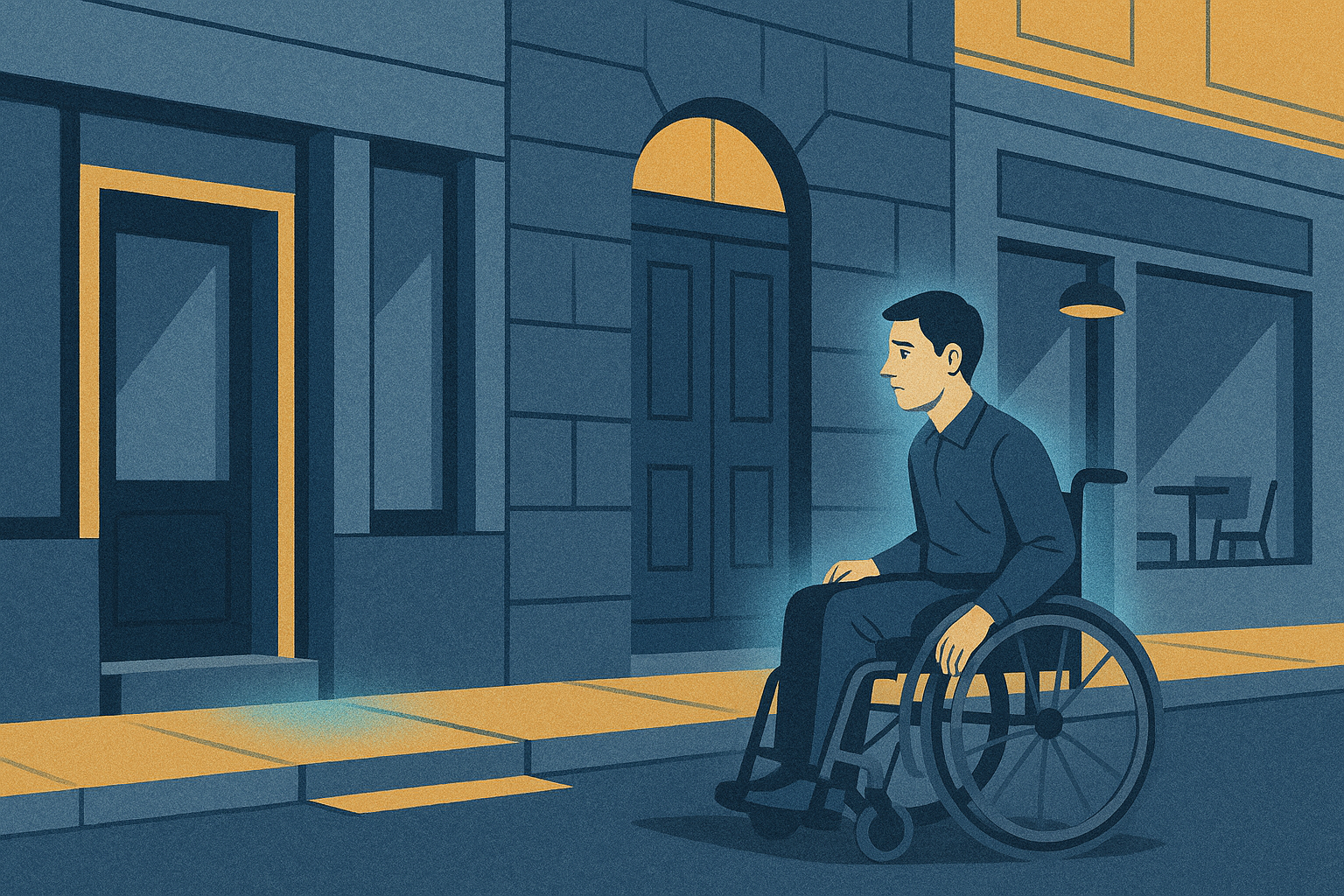A new Government study has found widespread failings in how private sector businesses serve disabled customers, exposing persistent barriers across retail, hospitality, and financial services.
The research, published 17 July by the Cabinet Office, is based on a nationwide survey of disabled people’s experiences across sectors including retail, entertainment, personal care, and banking. It identifies the most inaccessible industries and pinpoints where consumers are facing the greatest difficulties.
According to the report, 65% of disabled respondents cited retail as the least accessible sector, followed by entertainment and hospitality (57%), and personal care (49%). Subsector analysis found that clothing (78%) and grocery (76%) stores pose the greatest barriers within retail, while 85% of respondents described gyms and leisure centres as inaccessible. Three-quarters (74%) also reported issues with banking products and services.
For many, these barriers translate into higher costs: 62% experienced extra costs in retail, and 73% in household services, directly linked to accessibility gaps. The report also highlights a significant lack of consumer confidence, with 64% of retail users and 71% of fitness sector customers saying they are not confident their needs will be met in the future.
Responding to the findings, Angela Matthews, Director of Public Policy and Research at the Business Disability Forum (BDF), said:
“This research shows that businesses are not providing accessible customer experiences and service delivery. This is not only a failure of basic equal rights but is also a missed business opportunity. Businesses are putting up barriers which prevent more disabled people spending more money with them. It has a direct impact on businesses – on profit and growth as two basic examples – if they are not seeking to get their product or service purchased by as many people as possible.
“Many businesses talk about customer and client ‘needs’ which are ‘tailored’ and ‘individual’ and that they are ‘happy to help’. Yet these words we associate with excellent service are not being experienced by disabled people. Adjustments and accessibility here are really about removing a difficulty which gets in the way of someone spending money with a business. If the legal and moral case that every human being is valuable and of equal worth in society doesn’t land with businesses, the profit case certainly should. Either way the outcome is the same: businesses, why are you making it hard for people to spend their money with you?”
The Business Disability Forum runs a customer service taskforce and provides free resources to help businesses address accessibility, urging the private sector to act on the findings.
The new report follows earlier calls for tighter regulation, including Parliament’s push for private sector websites to meet the same accessibility standards as public sector bodies. With the European Accessibility Act coming into force in June 2025, UK businesses face mounting pressure to improve service delivery for disabled consumers or risk both regulatory penalties and lost revenue.



